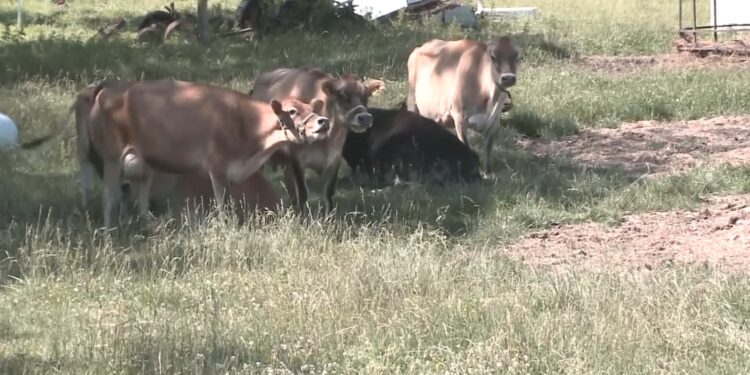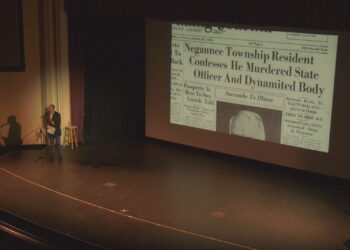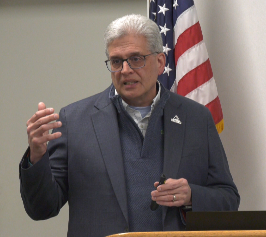LANSING, Mich. (WZMQ) – Farmers across the country have been facing a highly pathogenic strain of avian influenza, or bird flu. Most commonly found in wild poultry, the virus is now being detected in human and cattle populations.
UPDATE (7/9) – Since talking with Director Boring, another case of HPAI was detected in a cattle herd in Gratiot County, renewing concerns about the impacts of the virus on County fairs across the state.
Highly Pathogenic Avian Influenza, HPAI, or H5N1, more commonly known as the bird flu, has been an ongoing epidemic among wild poultry populations in the U.S. for years. The virus has mutated and been detected in domestic and wild mammal populations across the country and is now becoming a concern for dairy farmers in Michigan.
The director of the State’s Department for Agriculture and Rural Development, Tim Boring, said it’s still only been a few months since some of the first cases of HPAI in Michigan were found in dairy cows and humans.
“It’s truly been an evolving situation here. Our entire understanding of this disease in cattle here goes back to somewhere, you know, beginning in March.” Boring said. “We are cautiously in a good position right now.”
H5N1 has been found in 11 central and southern Michigan countries. Boring said the virus is usually lethal for birds, but most dairy cows are virus-free after a few weeks, dealing with mostly dehydration and decreased appetite. There have only been two confirmed cases in humans, and symptoms have been limited to pink eye and decreased upper respiratory function.
With summer fair and animal show season approaching, Boring said they’ve rolled out clear guidelines to prevent any spread of the virus. Enforcing rules that will require biosecurity signage, hand washing stations for workers and fairgoers, and negative tests for animals being shown.
“That it really speaks to the fact that we’re going to continue to prioritize not only the animal health aspects of this but the human health and making sure that we’re not dealing with the virus that becomes a greater human health risk moving forward.” Boring said. “The slowing and the known confirmations of dairy operations as as as as a positive sign, but we’re continuing to really prioritize farm worker protection. individuals that are coming to contact with sick animals on a daily basis.”
Boring said he’s optimistic the state’s quick response will curb the virus and keep it from spreading, hopefully limiting its impact on U.P. county fairs.










